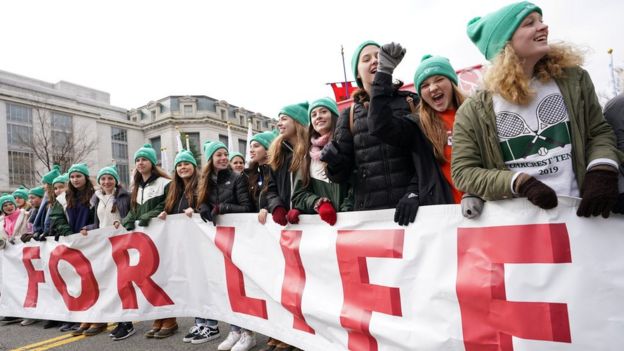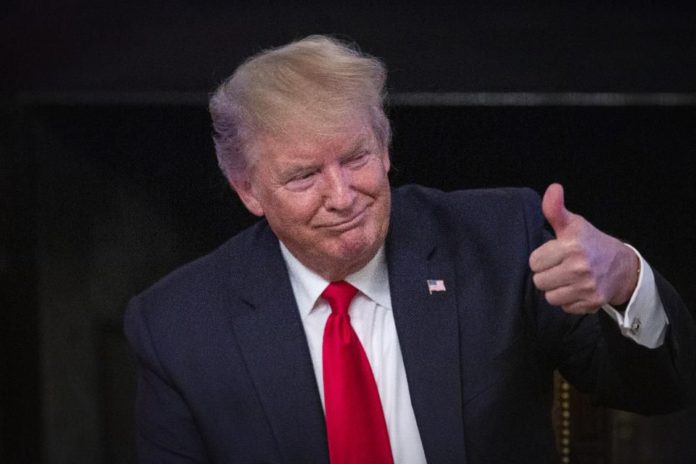Donald Trump has become the first US president to attend the anti-abortion movement’s biggest rally.
He addressed thousands of protesters at the March for Life near the US Capitol where his impeachment trial is ongoing.
Mr Trump said: “We’re here for a very simple reason: to defend the right of every child born and unborn to fulfill their God-given potential.”
The annual demonstration first began in 1973 – the year the US Supreme Court legalised abortion in Roe v Wade.
Until now no president had ever attended the march, which takes place just steps from the White House, though previous Republican presidents, including George W Bush and Ronald Reagan, did address the group remotely.
In a foreshadowing of Mr Trump’s appearance at the event, Mike Pence became the first sitting vice-president to attend the rally in 2017.
Mr Trump’s appearance at the 47th March for Life delighted protesters on Friday on the National Mall, the central thoroughfare in the heart of Washington DC.
Demonstrators shouted “four more years” and “we love you”.

Evangelical Christians and other social conservatives are a key part of the president’s base, and he has continued to court them as his re-election campaign ramps up.
March for Life president Jeanne Mancini said in a statement that Mr Trump and his administration “have been consistent champions for life”.
But pro-choice groups said his appearance was a distraction tactic.
Ilyse Hogue, the president of NARAL Pro-Choice America, said it was “a desperate attempt to divert attention from his criminal presidency and fire up his radical base”.
America’s two main political parties are more polarised than ever on the issue of abortion.
Democrats campaigning for November’s White House election are unapologetically pro-choice.
In 2016, the party for the first time included in its platform a call to repeal the Hyde Amendment, a decades-old law that prohibits using taxpayer money for abortions.
Last year, leading White House contender Joe Biden was sharply criticised by his Democratic rivals for initially backing the Hyde Amendment.
Amid uproar from the party’s liberal base, he reversed course in June.
Mr Trump, meanwhile, has bolstered support for anti-abortion views within the Republican party.
In 2018, Mr Trump was the first sitting president to address the Campaign for Life gala, sponsored by the Susan B Anthony List anti-abortion political action group. Earlier this week, the group announced it would spend $52m (£40m) in support of the president and Republicans in 2020.
Mr Trump has appointed conservative judges, banned clinics receiving tax money from promoting abortions and barred federal money going to foreign organisations that educate about or perform abortions.
Anti-abortion activists across the nation have been pushing abortion bans through state legislatures – measures that in some cases would bar an abortion as early as six weeks into a pregnancy.
Last year, 17 states enacted some form of abortion restriction, according to the Guttmacher Institute.
Anti-abortion groups hope the lawsuits will reach the US Supreme Court, which is now stacked with conservative-leaning justices, and ultimately result in Roe v Wade being overturned.
Such a monumental decision would enable individual states, such as those in the South and Midwest, to enshrine the abortion bans they have already passed.
In a few weeks, the justices are expected to take up the first major abortion-related case since the arrival of Trump appointees Brett Kavanaugh and Neil Gorsuch.

